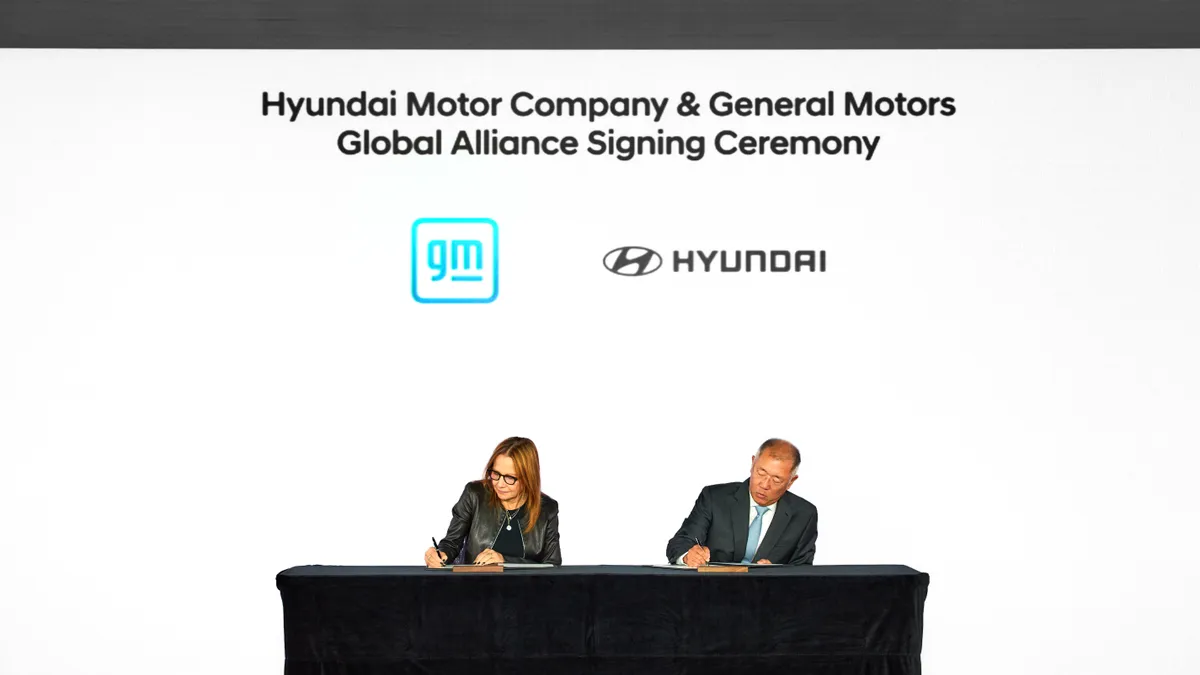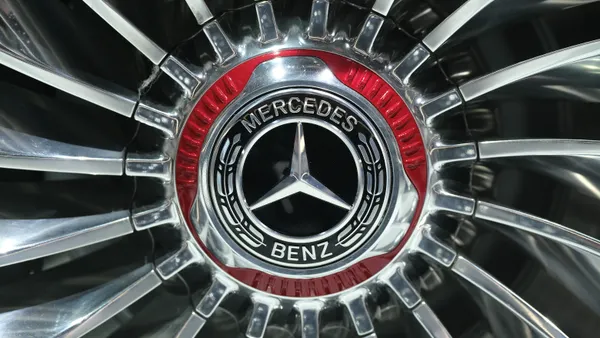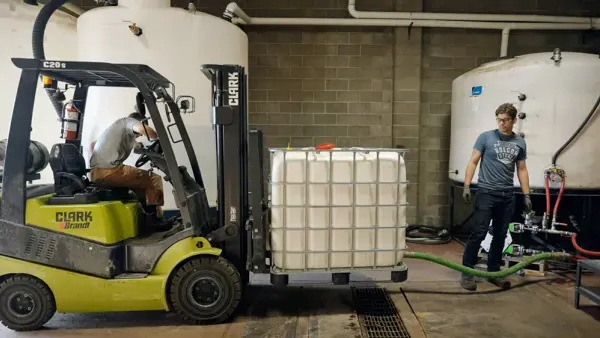Dive Brief:
- General Motors Co. and Hyundai Motor Co. have signed a memorandum of understanding to explore collaboration on vehicles, advanced powertrains and supply chains, the companies announced in a press release Thursday.
- Potential projects include the co-development and production of passenger and commercial vehicles, internal combustion engines, as well as electric, hydrogen and clean-energy technologies.
- The two companies will begin assessing collaboration opportunities and progression towards binding agreements immediately, according to the release.
Dive Insight:
The goal of the framework agreement, which was signed by Hyundai Motor Group executive chair Euisun Chung and GM CEO Mary Barra, is to reduce costs by leveraging the strengths and scale of each automaker, as well as bring new vehicles and advanced technologies to market faster.
“GM and Hyundai have complementary strengths and talented teams,” said Barra in the release. “Our goal is to unlock the scale and creativity of both companies to deliver even more competitive vehicles to customers faster and more efficiently.”
In addition to collaborating on new vehicles and related technologies, GM and Hyundai will explore opportunities for the combined sourcing of raw materials to reduce costs, including steel and critical materials for EV batteries. Barra said a partnership may also support more disciplined capital allocation.
“This partnership will enable Hyundai Motor and GM to evaluate opportunities to enhance competitiveness in key markets and vehicle segments, as well as drive cost efficiencies and provide stronger customer value through our combined expertise and innovative technologies,” said Chung, in the release.
Several of the world's top automakers have now established partnerships that they expect will help them accelerate innovation and lower the cost of producing next-generation vehicles.
In June, Volkswagen invested $1 billion in Rivian as part of a joint venture agreement to create the next-generation electrical/electronic architecture for EVs. Meanwhile, in August, Nissan Motor Co. and Honda Motor Co. announced a research agreement to explore the possibility of developing a platform and technologies for software-defined vehicles.
GM previously planned to co-develop and produce millions of EVs with Honda Motor Co. that would be built on GM’s Ultium platform. However, the plans, which were first announced in April 2020, were scrapped last October after GM announced it was scaling back its electrification plans.
GM is also pursuing other partnerships to support its future electrification goals. GM and Samsung SDI recently finalized a previously announced joint venture agreement on a $3.5 billion electric vehicle battery manufacturing plant. The New Carlisle, Indiana, factory is expected to begin production in 2027, a year later than anticipated.
Hyundai also recently updated its strategic plan. The plan includes achieving global sales of 5.5 million vehicles a year by 2030, a 30% increase from its previous 4.2 million unit sales target in 2023. To support the initiatives, the automaker plans to invest KRW 120.5 trillion ($90 billion) through 2033.











